Justice Informatics Seminar Series
The Columbia Department of Biomedical Informatics hosts a weekly seminar series, but it also welcomes speakers to take part in a seminars focused on justice informatics.
First announced in 2021, DBMI hosts a series of talks entitled “DBMI Special Seminar Series: Toward Diversity, Equity, and Inclusion in Informatics, Health Care, and Society.” These talks focus on informatics research topics related to diversity, equity, and inclusion.
DBMI also collaborates with the Columbia University Center for Precision Medicine and Genomics, Division of Ethics, to host a Disability Ethics, Intersectionality & AI/ML Bias Speaker Series.
Seminars that are part of either series will be posted below, as well as on the DBMI Seminar page.
Upcoming Seminars
Previous Seminars
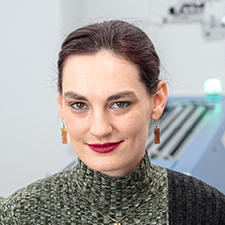 Title: Who’s Tool is it Anyway: Engaging Clinicians and Patients as Experts when Creating Novel Healthcare Technologies
Title: Who’s Tool is it Anyway: Engaging Clinicians and Patients as Experts when Creating Novel Healthcare Technologies
Presenter: Megan Hofmann, PhD, Assistant Professor, Khoury College of Computer Sciences, Northeastern University
Abstract: As more complex computing tools work their way into healthcare practice, clinicians and patients become reliant on black boxes that determine their outcomes. When these new technologies fail to improve patient care or have dangerous unforeseen consequences, clinicians are held responsible for the limitations of systems they may not readily understand. One approach is to build explainable systems so clinicians can interpret the outcomes of tools after the fact. But at this point, the harm may already be done. In this talk, we discuss a different approach to explainable software where clinicians and patients alike are involved in the development of healthcare tools as first-order experts. The goal of this approach is to remove the shroud of technical mysticism from these black boxes and produce software that both clinicians and their patients can understand and fully control. We will discuss this approach across three case studies exploring different emerging technologies in healthcare.
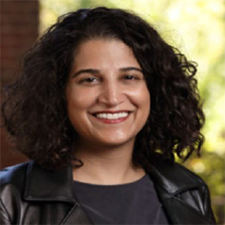 Title: Understanding the Disability Community’s Needs for Communicating with Social and Caregiving Networks
Title: Understanding the Disability Community’s Needs for Communicating with Social and Caregiving Networks
Presenter: Rupa S. Valdez, PhD, MS, Professor, Public Health Sciences & Systems and Information Engineering, University of Virginia
Abstract: Two empirical studies conducted in partnership with the disability community will be presented. Both studies present an in depth needs assessment to be used as a foundation for creating informatics tools responsive to the disability community’s needs. In the context of these studies, we have employed a range of methods including interviews, focus groups, task analysis, participatory design sessions, and usability testing. In the first study, supported by the Agency for Healthcare Research and Quality, we engaged with adults living with physical, cognitive, sensory, and mental health related disabilities to understand how best to design informatics tools supporting communication of health information among disabled adults and members of their social networks. In the second study, funded by the National Institutes of Health, we engaged with parents of children with medical complexity to understand the need for informatics tools that support communication and coordination with the child’s caregiving network. At the conclusion of this talk, I will present a framework which synthesizes lessons learned about engaging in informatics research with the disability community across these and other empirical studies conducted by our team.
Bio: My research focuses on understanding and designing solutions to support the ways in which people manage health at home and in the community. I draw on methods from multiple disciplines including human factors engineering, cultural anthropology, and health informatics, among others. This work encompasses participatory and co-design approaches and attends to the ways in which social networks, physical environment, community resources, and information technology shape patient experiences. I am particularly interested in how health is managed among marginalized populations, including racial/ethnic minorities, people with disabilities, and people living in under-resourced settings. A complementary research interest is in methodological development for research and teaching in this space. I have testified before Congress on the topic of bridging health equity gaps for people with disabilities and chronic conditions. My editorial appointments include serving as Associate Editor for Ergonomics, the Journal of American Medical Informatics Association Open, and Human Factors in Healthcare. Among other appointments, I serve on the Board of Directors for the American Association of People with Disabilities and for the American Health Information Management Association Foundation. I also serve on PCORI’s Patient Engagement Advisory Panel and the National Committee for Quality Assurance’s Health Equity Expert Work Group. I am also the Founder and President of the Blue Trunk Foundation.
 Title: On Being an Outlier in a World that Worships Optimization
Title: On Being an Outlier in a World that Worships Optimization
Presenter: Rua Williams, Assistant Professor, User Experience Design, Purdue University
Abstract: We often mistake the threat of “AI” as a threat for the future, because so many of the promises are pitched to us as something exciting “just over the horizon.” Unfortunately, algorithms are already used in our financial, judicial, and medical systems. In medicine, as dictated by risk/benefit/profit calculations, these “Algorithmic Inferences” often lead decision-makers to deny care to people because of their classification as disabled, thus accelerating their deaths. The argument is often that these adverse consequences are unintended exceptions. What would it mean to privilege the outlier? What if we used “AI” to find the pruning mechanism and dismantle it?
Bio: Rua M. Williams is an Assistant Professor in the User Experience Design program at Purdue University. They are a Just Tech Fellow with the Social Science Research Council. They study interactions between technology design, computing research practices, and Disability Justice. Common approaches to technology and service design for marginalized people tend to naturalize existing inequities, exacerbating injustice even while they attempt to ameliorate it. Dr. Williams deploys Feminist and Anti-Racist approaches to Technoscience, Critical disability Studies, and Science and Technology Studies in the design and evaluation of technological systems to simultaneously illustrate injustice in technology as well as marginalized users’ own practices of resistance through those same technologies.
 Title: Post-growth HCI
Title: Post-growth HCI
Presenter: Neha Kumar, Associate Professor, Georgia Tech
At speaker’s request, this presentation was not recorded
Abstract: Human–Computer Interaction (HCI) researchers have increasingly been questioning computing’s engagement with unsustainable and unjust economic growth, pushing for identifying alternatives. Incorporating degrowth, post-development, and steady-state approaches, post-growth philosophy offers an alternative not rooted in growth but in improving quality of life. It recommends an equitable reduction in resource use through sensible distributive practices where fulfillment is based on values including solidarity, cooperation, care, social justice, and localized development. This brand new TOCHI paper—coauthored with Vishal Sharma and Bonnie Nardi—that I will present describes opportunities for HCI to take a post-growth orientation in research, design, and practice to reimagine the design of sociotechnical systems toward advancing sustainable, just, and humane futures. We aim for the critiques, concerns, and recommendations offered by post-growth to be integrated into transformative HCI practices for technology-mediated change.
Bio: Neha Kumar is an associate professor at Georgia Tech, where she works at the intersection of human-centered computing and global sustainable development, with a focus on infrastructuring care and engaging community. Her lab’s research has been recognized by multiple ACM Best Paper and Honorable Mention awards at the ACM CHI and CSCW conferences. Neha earned her PhD at the UC Berkeley School of Information, Master’s degrees in Computer Science and Education at Stanford University, and Bachelor’s in Computer Science and Applied Math at UC Berkeley. Neha currently serves as the president of ACM SIGCHI.
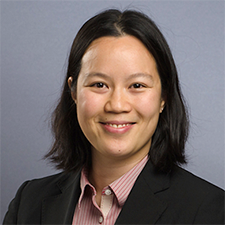 Title: Improving Prediction of 30-day Hospital Readmission for Patients with Heart Failure through the Integration of Neighborhood-Level Measures
Presenter: Joyce Ho, Assistant Professor in the Department of Computer Science, Emory University
Watch this Presentation
Abstract: Heart failure is the most common cause of cardiovascular hospitalization in elderly patients. Even with recent therapeutic improvements, approximately 20% of patients are readmitted to the hospital within 30 days. Moreover, there are persistent racial disparities in heart failure outcomes. The neighborhood environment has emerged as an understudied and under-utilizer driver of readmission. Yet such information is not commonly collected in electronic health records and existing deprivation indices may not fully capture the neighborhood factors. In this talk, I will present our work on the integration of social media, location-based services, and air quality data to enhance our neighborhood understanding of 30-day readmission for heart failure.
Bio: Joyce Ho is an Associate Professor in the Computer Science Department at Emory University. She received her Ph.D. in Electrical and Computer Engineering from the University of Texas at Austin, and an M.A. and B.S. in Electrical Engineering and Computer Science from MIT. Her research focuses on the development of novel machine learning algorithms to address problems in healthcare such as identifying patient subgroups or phenotypes, integrating new streams of data, fusing different modalities of data (e.g., structured medical codes and unstructured text), and dealing with conflicting expert annotations. Her work has been supported by the National Science Foundation (including a CAREER award), National Institute of Health, Robert Wood Johnson Foundation, and Johnson and Johnson.
Title: Improving Prediction of 30-day Hospital Readmission for Patients with Heart Failure through the Integration of Neighborhood-Level Measures
Presenter: Joyce Ho, Assistant Professor in the Department of Computer Science, Emory University
Watch this Presentation
Abstract: Heart failure is the most common cause of cardiovascular hospitalization in elderly patients. Even with recent therapeutic improvements, approximately 20% of patients are readmitted to the hospital within 30 days. Moreover, there are persistent racial disparities in heart failure outcomes. The neighborhood environment has emerged as an understudied and under-utilizer driver of readmission. Yet such information is not commonly collected in electronic health records and existing deprivation indices may not fully capture the neighborhood factors. In this talk, I will present our work on the integration of social media, location-based services, and air quality data to enhance our neighborhood understanding of 30-day readmission for heart failure.
Bio: Joyce Ho is an Associate Professor in the Computer Science Department at Emory University. She received her Ph.D. in Electrical and Computer Engineering from the University of Texas at Austin, and an M.A. and B.S. in Electrical Engineering and Computer Science from MIT. Her research focuses on the development of novel machine learning algorithms to address problems in healthcare such as identifying patient subgroups or phenotypes, integrating new streams of data, fusing different modalities of data (e.g., structured medical codes and unstructured text), and dealing with conflicting expert annotations. Her work has been supported by the National Science Foundation (including a CAREER award), National Institute of Health, Robert Wood Johnson Foundation, and Johnson and Johnson.
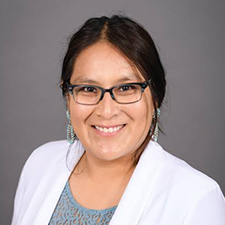 Speakers: Krystal Tsosie and Keolu Fox
Speakers: Krystal Tsosie and Keolu Fox
Title: #DATABACK: Indigenous Genomic Data Justice for Indigenous Peoples
Abstract: Despite over a decade of efforts to increase diversity in genomic datasets, Indigenous peoples still constitute less than 1% of total representation. The answer, however, is not simply to recruit more Indigenous peoples because defaulting to old, problematic norms of broad consent can recreate cycles of data exploitation and extraction that benefit Indigenous peoples last. To move forward, we need to rethink data equity approaches that center principles of Indigenous genomic data sovereignty, which means employing new techniques in blockchaining and federated learning in addition to Indigenous-led bio-databanks. Hence, Drs. Tsosie and Fox are advocating for an Indigenous data justice approach that is truly responsive to genomic medicine and precision health innovation.
Bios: Krystal Tsosie, PHD, MPH, MA is an Indigenous (Diné/Navajo Nation) geneticist-bioethicist at Arizona State University’s School of Life Sciences and Center for Biology and Society. She co-founded the Native BioData Consortium, the first US Indigenous-led biobank and 501c3 nonprofit research institution. Much of her current research centers on ethical engagement with Indigenous communities in precision health through genetic epidemiology, public health, and computational approaches. She is also increasingly exploring machine learning approaches and using digital data tools to operationalize Indigenous genomic data sovereignty to foster Indigenous-led data solutions and build Tribal Nations’ capacity in technology, health, education, and local data economies.
Keolu Fox is the first Kānaka Maoli (Native Hawaiian) to receive a doctorate in genome sciences, and is an assistant professor at the University of California, San Diego, affiliated with the Department of Anthropology, the Global Health Program, the Halıcıoğlu Data Science Institute, the Climate Action Lab, the Design Lab, and the Indigenous Futures Institute. His work focuses on the connection between raw data as a resource and the emerging value of genomic health data from Indigenous communities. He has experience designing and engineering genome sequencing and editing technologies, and a decade of grassroots experience working with Indigenous partners to advance precision medicine. As an ENRICH Global Chair, Keolu will build a library for Indigenous health data in partnership with Indigenous communities. He will pilot a platform that will enable collecting and protecting Indigenous health data using Indigenous Data Sovereignty (IDS) principles, which provides a framework for allowing Indigenous communities themselves to manage and benefit from their own data. Ultimately, he hopes to create a replicable standard for Indigenous data sovereignty.
 Speaker: Lauren Wilcox, Responsible AI & Human-Centered Technology in Google Research
Speaker: Lauren Wilcox, Responsible AI & Human-Centered Technology in Google Research
Title: Participatory Approaches to Health AI
Per the speaker’s request, this session was not recorded.
Abstract: Advances in computing technology continue to offer us new insights about our health. As mutually reinforcing trends make the use of wearable and mobile devices routine, we now collect personal, health-related data at an unprecedented scale. Meanwhile, the use of deep-learning-based health screening technologies changes relationships between caregivers and care recipients, with multitudinous implications for equity, privacy, safety, and trust. How can researchers take inclusive and responsible approaches to envisioning solutions, training data, and deploying ML/AI-driven solutions? Who should be involved in decisions about how to use ML/AI in digital health and well-being solutions, and even what solutions matter in the first place?
In this talk, I will discuss participatory approaches to designing digital health and well-being technologies with impacted communities. Starting with field studies in clinics exploring how people navigated use of a deployed, diagnostic AI system, and moving onto lessons learned from an international study of how people with marginalized health needs navigate aspects of their health care, I will highlight the importance of taking participatory approaches to technology design, development, and evaluation.
Bio: Lauren Wilcox, PhD, is a Senior Staff Research Scientist and Group Manager in Responsible AI and Human-Centered Computing in Google Research. Her work builds on many years of experience conducting human-centered computing research in service of human health and well-being. Previously at Google Health, Wilcox led initiatives to align AI advancements in healthcare with the needs of clinicians, patients, and their family members. She also holds an Adjunct Associate Professor position in Georgia Tech’s School of Interactive Computing where she was a tenured associate professor. Wilcox was an inaugural member of the ACM Future of Computing Academy. She frequently serves on the organizing and technical program committees for premier conferences in the field. Wilcox received her PhD in Computer Science from Columbia University in 2013.
 Title: Transforming the Health of Communities through Innovations in Social Computing
Title: Transforming the Health of Communities through Innovations in Social Computing
Speaker: Dr. Andrea Grimes Parker, Associate Professor at Georgia Tech
Watch This PresentationAbstract: Digital health research—the investigation of how technology can be designed to support wellbeing—has exploded in recent years. Much of this innovation has stemmed from advances in the fields of human-computer interaction and artificial intelligence. A growing segment of this work is examining how information and communication technologies (ICTs) can be used to achieve health equity, that is, fair opportunities for all people to live a healthy life. Such advances are sorely needed, as there exist large disparities in morbidity and mortality across population groups. These disparities are due in large part to social determinants of health, that is, social, physical, and economic conditions that disproportionately inhibit wellbeing in populations such as low-socioeconomic status and racial and ethnic minority groups.
Despite years of digital health research and commercial innovation, profound health disparities persist. In this talk, I will argue that to reduce health disparities, ICTs must address social determinants of health. Intelligent interfaces have much to offer in this regard, and yet their affordances—such as the ability to deliver personalized health interventions—can also act as pitfalls. For example, a focus on personalized health interventions can lead to the design of interfaces that help individuals engage in behavioral change. While such innovations are important, to achieve health equity there is also a need for complimentary systems that address social relationships. Social ties are a crucial point of focus for digital health research as they can provide meaningful supports for positive health, especially in populations that disproportionately experience barriers to wellbeing.
I will offer a vision for digital health equity research in which interactive and intelligent systems are designed to help people build, enrich, and engage social relationships that support wellbeing. By expanding the focus from individual to social change, there is tremendous opportunity to create disruptive interventions that catalyze and sustain population health improvements.
Bio: Andrea Grimes Parker is an Associate Professor in the School of Interactive Computing at Georgia Tech. She is also an Adjunct Associate Professor in the Rollins School of Public Health at Emory University and at Morehouse School of Medicine. Dr. Parker holds a Ph.D. in Human-Centered Computing from Georgia Tech and a B.S. in Computer Science from Northeastern University. She is the founder and director of the Wellness Technology Lab at Georgia Tech. Her interdisciplinary research spans the domains of human-computer interaction and public health, as she examines how social and interactive computing systems can be designed to address health inequities.
Dr. Parker has published widely in the space of digital health equity and received several best paper honorable mention awards for her research. Her research has been funded through awards from the National Science Foundation, the National Institutes of Health, the Aetna Foundation, Google, and Johnson & Johnson. Additionally, she is a recipient of the 2020 Georgia Clinical & Translational Science Alliance Team Science Award. Dr. Parker has held various leadership roles, including serving as co-chair for Workgroup on Interactive Systems in Healthcare (WISH) and as a member of the Johnson & Johnson / Morehouse School of Medicine Georgia Maternal Health Research for Action Steering Committee.
 Title: Disability accessibility and fairness in Artificial Intelligence (AI)
Title: Disability accessibility and fairness in Artificial Intelligence (AI)
Speaker: Cynthia Bennett, PhD, Senior Research Scientist at Google’s People + AI Research Group
Abstract: Artificial intelligence (AI) promises to automate and scale solutions to perennial accessibility challenges (e.g., generating image descriptions for blind users). However, research shows that AI-bias disproportionately impacts people already marginalized based on their race, gender, or disabilities, raising questions about potential impacts in addition to AI’s promise. In this talk I will overview broad concerns at the intersection of AI, disability, and accessibility. I will then share details about one project in this research space that led to guidance on human and AI-generated image descriptions that account for subjective and potentially sensitive descriptors around race, gender, and disability of people in images.
Bio: Dr. Cynthia Bennett is a Senior Research Scientist in Google’s Responsible AI and Human-Centered Technology organization. Her research concerns the intersection of AI ethics and disability. Bennett is regularly invited to speak; recent hosts include Stanford and Apple. Previously, Bennett has worked at Carnegie Mellon University, Apple, and the University of Washington. Her work has received grant funding from Microsoft Research and the National Science Foundation, and eight of her peer reviewed publications have received awards. Bennett is a disabled woman scholar working in the tech and academic sectors, and she does raising participation service. Bennett’s website is bennettc.com, and her Twitter handle is @clb5590.
 Title: Standardizing the Unstandardizable: The Case of Sex and Gender
Title: Standardizing the Unstandardizable: The Case of Sex and Gender
Abstract: In 2015, notice number NOT-OD-15-102 was released by the National Institutes of Health. The notice specified “consideration of sex as a biological variable” (SABV), requiring submission of information regarding this new construct from 2016 onward. However, despite this imperative explicitly citing enhancement of reproducibility, it did not lay out any conceptualization of what SABV meant, in non-human animal or human contexts, and it relied heavily on binarist and gender essentialist assumptions, which have ultimately confused the situation further. This confusion has led to SABV being co-opted by transphobic and intersexphobic organizations and individuals, while not necessarily impacting reproducibility. Why are sex and gender such complicated variables to consider? How did these constructs come to exist within the purview of scientific analysis? And what work is being done to untangle the current situation? This talk will aim to discuss these questions, while also considering the deeper ideologies underlying current scientific research and sociopolitical agendas, and how they affect effective modeling of sex and gender constructs in informatics and beyond.
Bio: Clair Kronk (she/her) is a postdoctoral fellow at the transitioning Yale Center for Medical Informatics (YCMI). She is the creator and sole author of the first LGBTQIA+ controlled vocabulary for usage in health care settings, the Gender, Sex, and Sexual Orientation (GSSO) ontology, which contains information on over 15,000 terms. Dr. Kronk has provided valuable input on GSSO standards for a number of organizations, including the Health Level 7 (HL7) Gender Harmony Project (GHP), the Systematized Nomenclature of Medicine (SNOMED), Canada Health Infoway (CHI), the International Organization for Standardization (ISO), Queensland Health, the National Academies of Sciences, Engineering, and Medicine (NASEM), the United States Core Data for Interoperability (USCDI), the World Health Organization (WHO), the Trans Metadata Collective (TMDC), the Homosaurus, Wikidata, and the American Medical Informatics Association (AMIA) Diversity, Equity, and Inclusion (DEI) Task Force.
 Title: Algorithmic bias and data platforms
Title: Algorithmic bias and data platforms
Abstract: We’re increasingly aware of the many ways that algorithms can encode and scale up racial bias. When designed with careful attention to label choice, algorithms can also be used to counter biases present in the health care system and ingrained in medical knowledge. To do so effectively, researchers and product developers must have access to platforms on which they can access health data for the benefit of patients and society.
Bio: Ziad trained as an emergency doctor – and he still gets away as often as he can, to a hospital in rural Arizona, to work in the ER. But these days, he spends most of his time on research and teaching at Berkeley. Inspired by his clinical practice, he builds machine learning algorithms that help doctors make better decisions. He also studies where algorithms can go wrong, and how to fix them: his work on algorithmic bias has been highly influential both in public debate about algorithms, and in regulatory oversight and civil investigations. He is a Chan Zuckerberg Biohub Investigator, a Faculty Research Fellow at the National Bureau of Economic Research, and has been named an emerging leader by the National Academy of Medicine. His work has won numerous awards, and appeared in a wide range of journals (Science, Nature Medicine, the New England Journal of Medicine, leading computer science conferences). He is a co-founder of Nightingale Open Science, a non-profit that makes massive new medical imaging datasets available for research, and Dandelion, a platform for AI innovation in health. Before coming to Berkeley, he was an Assistant Professor at Harvard Medical School and a consultant at McKinsey & Co.
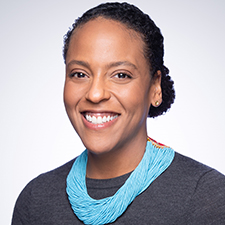 Title: Advancing Health Equity through the use of Data
Title: Advancing Health Equity through the use of Data
At the presenter’s request, this session was not recorded.
Bio: Julia Iyasere, M.D., is the Executive Director of the Dalio Center for Health Justice at NewYork- Presbyterian. In this role, she leads the Center’s efforts to address longstanding health inequities due to race, socio-economic differences, limited access to care, and other complex factors that impact the wellbeing of our communities. Dr. Iyasere attended Yale University for her B.S. in Biology and Columbia University for her M.D./M.B.A. After completing her residency in Internal Medicine at Columbia, Dr. Iyasere joined the Division of General Medicine at Columbia in 2012. Prior to her current role, Dr. Iyasere was the Associate Chief Medical Officer for Service Lines and the Co-Director of the Care Team Office at NYP. An Assistant Professor of Medicine, Dr. Iyasere continues to see patients as an internist in the Section for Hospital Medicine at Columbia.
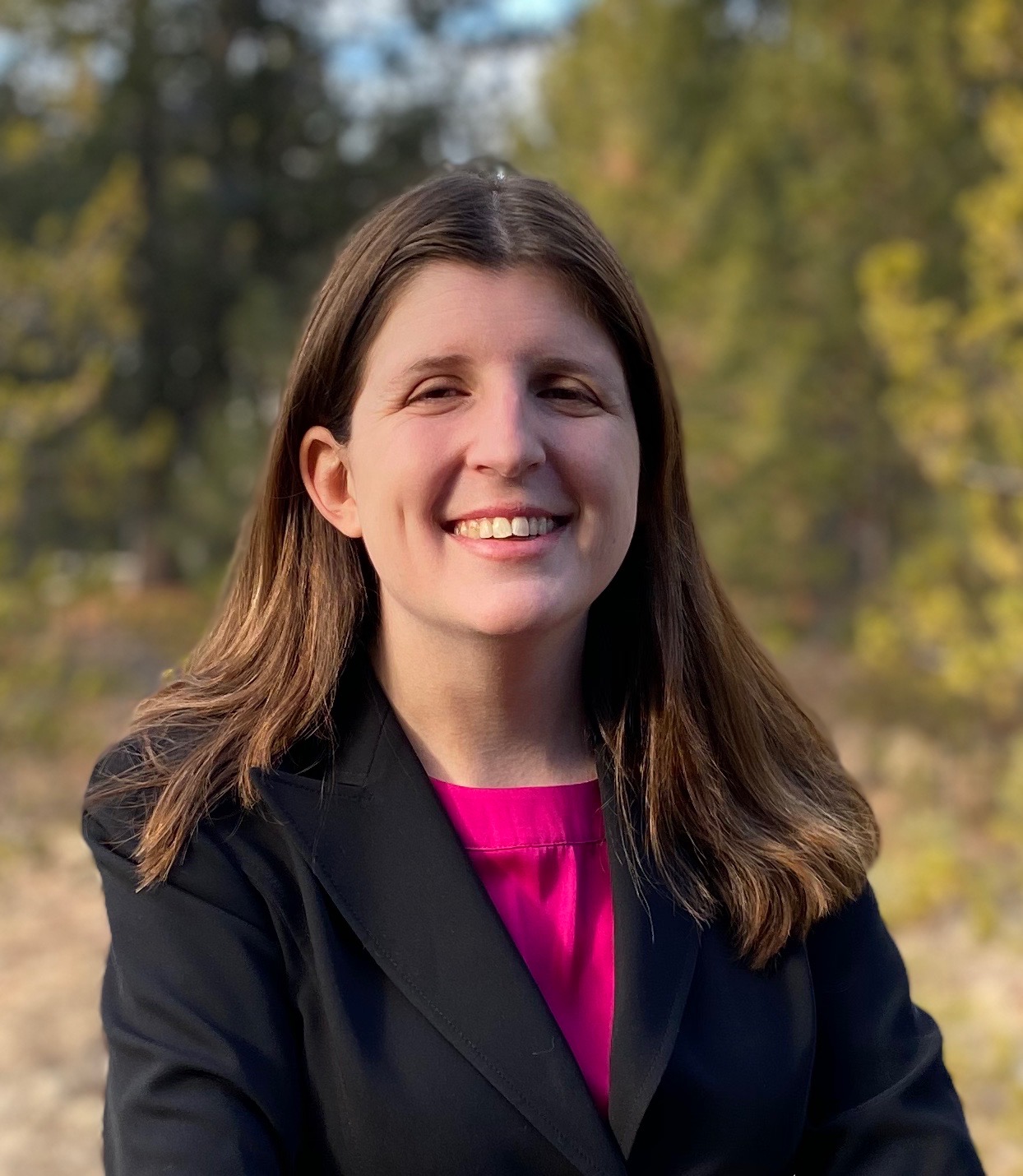 Title: Using Machine Learning to Increase Equity in Healthcare and Public Health
Title: Using Machine Learning to Increase Equity in Healthcare and Public Health
Abstract: Our society remains profoundly unequal. Worse, there is abundant evidence that algorithms can, improperly applied, exacerbate inequality in healthcare and other domains. This talk pursues a more optimistic counterpoint — that data science and machine learning can also be used to illuminate and reduce inequality in healthcare and public health — by presenting vignettes about women’s health, COVID-19, and pain.
Bio: Emma Pierson is an assistant professor of computer science at the Jacobs Technion-Cornell Institute at Cornell Tech and the Technion, and a computer science field member at Cornell University. She holds a secondary joint appointment as an Assistant Professor of Population Health Sciences at Weill Cornell Medical College. She develops data science and machine learning methods to study inequality and healthcare. Her work has been recognized by best paper, poster, and talk awards, an NSF CAREER award, a Rhodes Scholarship, Hertz Fellowship, Rising Star in EECS, MIT Technology Review 35 Innovators Under 35, and Forbes 30 Under 30 in Science. Her research has been published at venues including ICML, KDD, WWW, Nature, and Nature Medicine, and she has also written for The New York Times, FiveThirtyEight, Wired, and various other publications.
 Title: Achieving TechQuity
Title: Achieving TechQuity
(seminar was not recorded at the request of the Dr. Clark)
Abstract: Open discussions of social justice and health inequities may be an uncommon focus within information technology science, business, and health care delivery partnerships. However, the COVID-19 pandemic—which disproportionately affected Black, indigenous, and people of color—has reinforced the need to examine and define roles that technology partners should play to lead anti-racism efforts through our work. In this hour, we will discuss the imperative to prioritize TechQuity, and addressing social contexts in the implementation of AI and other technologies.
Bio: Cheryl Clark MD, ScD, is an Assistant Professor of Medicine at Harvard Medical School and a Hospitalist, social epidemiologist and Associate Chief in the Brigham and Women’s Hospital Division of General Medicine and Primary Care for Equity Research & Strategic Partnerships. Dr. Clark’s research focuses on social determinants of cardiometabolic health in diverse and aging populations. She is principal investigator for community engagement in the New England hub of the National Institutes of Health All of Us Research Program and chaired the social determinants of health (SDOH) Task Force that developed the SDOH participant provided information survey for All of Us. Dr. Clark serves on the Mass General Brigham Predictive Analytics committee to provide equity review of algorithms considered for clinical implementation. Dr. Clark chaired the COVID-19 equity response team during the early phase of the COVID-19 pandemic in 2020. She is the inaugural recipient of the Equity, Social Justice and Advocacy Award from Harvard Medical School and Harvard School of Dental Medicine.
 Title: Racial and Ethnic Differences in Genetic Testing Uptake and Results among Young Breast Cancer Survivors: Looking Ahead at Future Work
Title: Racial and Ethnic Differences in Genetic Testing Uptake and Results among Young Breast Cancer Survivors: Looking Ahead at Future Work
(seminar was not recorded at the request of the Dr. Jones)
Abstract: Genetic testing for hereditary breast and ovarian cancer (HBOC) syndrome (e.g., BRCA1/2 genes) is recommended for all young women diagnosed with breast cancer at ≤ age 45, yet there is an underutilization of this critical test among this population. In this presentation, I will provide an overview of the current landscape of genetic testing and discuss my program of research that focuses on racial and ethnic differences in genetic testing uptake and results among young breast cancer survivors (YBCS). In addition, I will provide an overview of my current and future work including our innovative web-based decision aid intervention, RealRisks, that we are adapting for racially/ethnically diverse young breast cancer survivors in order to increase access to genetic testing and family risk communication. A special emphasis is placed on promoting health equity and reducing cancer health disparities.
Bio: Dr. Jones is an Assistant Professor of Nursing at the Christine E. Lynn College of Nursing at Florida Atlantic University. She obtained a Bachelor’s of Science in Nursing degree from Seton Hall University and a Master’s of Science in Nursing degree from the Catholic University of America with a specialization in community/public health nursing and the care of immigrants, refugees, and global health. She holds a certification as an advanced public health nurse (PHNA-BC). She obtained a Doctor of Philosophy (PhD) in Nursing degree from Duquesne University and completed a post-doctoral research fellowship at Dana Farber Cancer Institute and Harvard Medical School.
Her research focuses on cancer prevention and control, risk-communication, and risk-reduction. Her current work focuses on improving uptake of genetic testing for breast cancer risk (i.e., BRCA1/2 genes and multigene panel testing) through culturally appropriate interventions, to facilitate informed decision-making for cancer risk-reducing strategies, and to promote family risk communication among young breast cancer survivors and their at-risk family members, with a particular emphasis on Black and Hispanic women. Her research is supported by the National Institute of Health (NIH) and the DAISY Foundation.
 Talk title: Are phenotyping algorithms fair for underrepresented minorities within older adults?
Talk title: Are phenotyping algorithms fair for underrepresented minorities within older adults?
Abstract: The widespread adoption of machine learning (ML) algorithms for risk-stratification has unearthed plenty of cases of racial/ethnic biases within algorithms. When built without careful weightage and bias-proofing, ML algorithms can give wrong recommendations, thereby worsening health disparities faced by communities of color. Biases within electronic phenotyping algorithms are largely unexplored. In this work, we look at probabilistic phenotyping algorithms for clinical conditions common in vulnerable older adults: dementia, frailty, mild cognitive impairment, Alzheimer’s disease, and Parkinson’s disease. We created an experimental framework to explore racial/ethnic biases within a single healthcare system, Stanford Health Care, to fully evaluate the performance of such algorithms under different ethnicity distributions, allowing us to identify which algorithms may be biased and under what conditions. We demonstrate that these algorithms have performance (precision, recall, accuracy) variations anywhere between 3 to 30% across ethnic populations; even when not using ethnicity as an input variable. In over 1,200 model evaluations, we have identified patterns that indicate which phenotype algorithms are more susceptible to exhibiting bias for certain ethnic groups. Lastly, we present recommendations for how to discover and potentially fix these biases in the context of the five phenotypes selected for this assessment.
Bio: Dr. Juan M. Banda at his GSU lab, Panacea Lab, works on building machine learning, and NLP methods that help to generate insights from multi-modal large-scale data sources, with applications to precision medicine, medical informatics, as well as other domains. His research interests are not limited to structured data, he is also well-versed in extracting terms and clinical concepts from millions of unstructured electronic health records and using them to build predictive models (electronic phenotyping) and mine for potential multi-drug interactions (drug safety). Dr. Banda’s has published over 70 peer reviewed conference and journal papers and serves as an editorial board member of the Journal of the American Medical Informatics and Frontiers in Medicine – Translational Medicine, and a reviewer for JBI, nature Digital Medicine, nature Scientific Data, nature Protocols, PLOS One, and several other leading journals. Prior to being an assistant professor of Computer Science at Georgia State University, Dr. Banda was a postdoctoral scholar, then a research scientist at Stanford’s center of Biomedical Informatics. He is an active collaborator of the Observational Health Data Sciences and Informatics, and his work has been funded by the Department of Veteran Affairs, National Institute of Aging as well as NASA, NSF and NIH, and serves as a PC member and chair for several conferences and workshops including ICML, NeurIPS, FLAIRS, IEEE Big Data, among others.

Title: Multimorbidity Patterns Across Race/Ethnicity Stratified by Age and Obesity: A Cross-sectional Study of a National US Sample
(Due to the ongoing research, this seminar was not recorded)
Objectives: The objective of our study is to assess differences in prevalence of multimorbidity by race.
Methods: We applied the FP-growth algorithm on middle-aged and elderly cohorts stratified by race, age, and obesity level. We used 2016-2017 data from the Cerner HealthFacts® Electronic Health Record data warehouse. We identified disease combinations that are shared by all races/ethnicities, those shared by some, and those that are unique to one group for each age/obesity level.
Results: Our findings demonstrate that even after controlling for age and obesity, there are differences in multimorbidity prevalence across races. There are multimorbidity combinations distinct to some racial groups—many of which are understudied. Some multimorbidities are shared by some but not all races. African Americans presented with the most distinct multimorbidities at an earlier age.
Discussion: The identification of prevalent multimorbidity combinations amongst subpopulations provides information specific to their unique clinical needs.
 Title: Identifying and Leveraging Public Data Sources with Social Determinants of Health Information for Population Health Informatics Research
Watch The Presentation Here
Abstract: Social determinants of health (SDOH) account for many health inequities. Data sources traditionally used in informatics research often lack SDOH, and, when available, SDOH may be difficult to leverage given it’s lack of specificity and lack of structured information. In this presentation, I will share the initial phases of work that we are doing around leveraging SDoH data – for health equity research – addressing some of the informatics challenges leveraging social determinants of health data to inform population health or inform health services research. I will discuss a case study using a machine learning clustering algorithm to uncover region-specific sociodemographic features and disease-risk prevalence correlated with COVID-19 mortality during the early accelerated phase of community spread.
Title: Identifying and Leveraging Public Data Sources with Social Determinants of Health Information for Population Health Informatics Research
Watch The Presentation Here
Abstract: Social determinants of health (SDOH) account for many health inequities. Data sources traditionally used in informatics research often lack SDOH, and, when available, SDOH may be difficult to leverage given it’s lack of specificity and lack of structured information. In this presentation, I will share the initial phases of work that we are doing around leveraging SDoH data – for health equity research – addressing some of the informatics challenges leveraging social determinants of health data to inform population health or inform health services research. I will discuss a case study using a machine learning clustering algorithm to uncover region-specific sociodemographic features and disease-risk prevalence correlated with COVID-19 mortality during the early accelerated phase of community spread. Title: Toward health justice in informatics: a community-based, intersectional approach to HIV informatics intervention development
Title: Toward health justice in informatics: a community-based, intersectional approach to HIV informatics intervention development 

